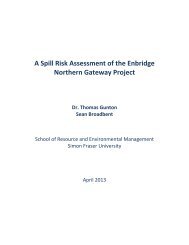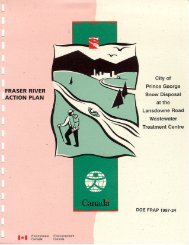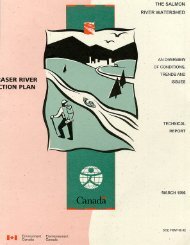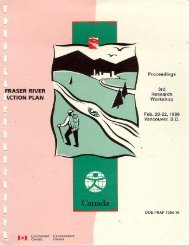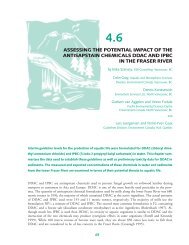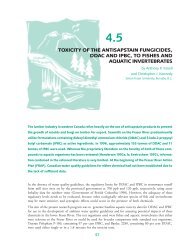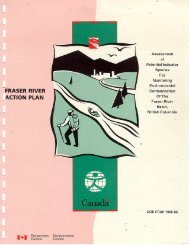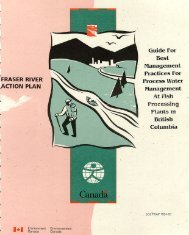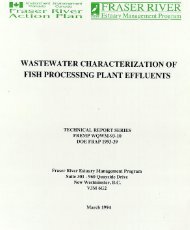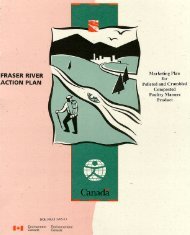Livestock Waste Management Practices And Legilation Outside Br
Livestock Waste Management Practices And Legilation Outside Br
Livestock Waste Management Practices And Legilation Outside Br
Create successful ePaper yourself
Turn your PDF publications into a flip-book with our unique Google optimized e-Paper software.
hectare, fattening pigs 10.5 animals per hectare, laying hens 100 birds per<br />
hectare.<br />
2.2.4 DISPOSAL<br />
9<br />
Disposal of manure remains the number one dilemma for both the individual<br />
farmer and the industry as a whole. In many cases, using manures has become<br />
less related to fertilizing and more accurately labelled waste disposal. As we<br />
move from farm-scale to industrial-scale production, disposing of manure in a<br />
safe, economical, efficient and non-polluting manner has been a leading<br />
research agenda item in many countries. Some countries have evolved strict<br />
and specific policy and practices while others approach the issue through<br />
education and voluntary actions.<br />
To quote from an article in the North Carolina Journal of International Law and<br />
Commercial Regulation which is indicative of how severe the problem of manure<br />
surpluses can become, "For the time being, the Dutch may have won their<br />
constant battle against water, now they are in imminent danger of drowning in<br />
manure." (<strong>Br</strong>ussard & Rosso Grossman, page 88, 1990).<br />
Excess manure production is prevalent in countries that have increased<br />
intensive livestock production as population and thus demand have increased.<br />
Disposal of manure involves many factors including availability of land<br />
associated with the farm unit, manure contracts with other land owners, and<br />
maximum quantities of manure allowed for a farm unit per hectare.<br />
The Netherlands has specific legislation related to disposal known as the<br />
Fertilizer Act (1984) which regulates trade in fertilizing products, removal of<br />
surplus manure and its financing as well as the production of animal manure.<br />
The Act restricts the transfer of manure production to another business or to<br />
another location and establishes regulations regarding surplus manure. The<br />
Manure Law of 1987 took over many of the Fertilizer Act regulations and created<br />
the Manure Bank which is unique to the Netherlands and was formed to aid in<br />
efficient transfer of excess manure. Membership is not mandatory and it is run<br />
as a non-profit operation. Some of the banks funding relies upon a levy paid on<br />
manure surpluses and is used to create facilities for efficient transport,<br />
supervision and processing of surpluses.<br />
1



